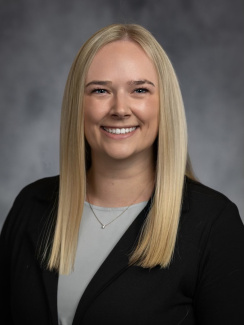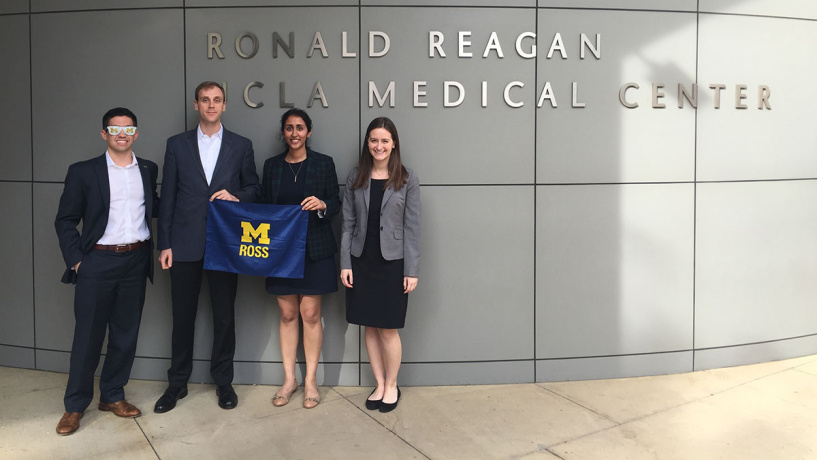From MD/MBA to Changing the Course of Pain Management

Entering business school was challenging. As a medical student, I wanted to learn how to have the most far-reaching impacts on patients, but with no prior experience or coursework in the business sector, my unpreparedness was glaringly evident.
Upon reflection, I felt similarly to how my patients often felt. They must enter and navigate a new culture, too. Entering the classroom, I was timid. It felt like I was in a world with a whole new language. I found myself plagued with self-doubt: should I really be here? Do I have anything meaningful to contribute? It wasn’t until my Multidisciplinary Action Project at the end of the first year that all the pieces slowly fell into place.
For me, MAP weaved together all my past and current experiences into a beautifully tied bow. My project was with the Opioid Prescribing Engagement Network. The network was founded by Dr. Chad Brummett at Michigan Medicine, an anesthesiologist I aspire to be like one day. The goal of our project was to develop a business case for the implementation of transitional pain services (TPS). These programs identify and work with patients with planned surgeries who are at high risk for poor pain and opioid-related outcomes after surgery. We know these programs can be highly effective, but institutions are having trouble justifying their high upfront costs. For this reason, they aren’t yet very common in clinical practice.
Our project was a big success. We showed that TPS could be a financially feasible option. We even developed a modifiable financial modeling tool that any hospital can use to determine the potential costs and savings associated with starting a program like this. After concluding, we knew that we had to distribute this information more widely to increase the presence of these programs nationally.
I shared our findings at the American Society for Regional Anesthesia and Pain Medicine conference, and our work received the recognition we wished for. We were awarded the President’s Choice award. I was contacted by Pain Medicine News for print and video interviews, and our findings were accepted for publication in the Regional Anesthesia and Pain Medicine medical journal.
A once remote dream finally came into clear view. This is exactly how I had hoped my MBA would help me improve patient care. Michigan Ross and the Opioid Prescribing Engagement Network gave us the tools we needed to be change-makers in clinical practice.
A huge thank you to the team that made this all possible:
- Students: Christina Shabet (MD/MBA ‘24), James Lin (MBA ‘24), Akul Arora (MD/MBA ‘24), Aurelio Muzaurieta (MD/MBA ‘24), and Nina Maghsoodi (MD/MBA ‘24)
- MAP sponsors: Dr. Chad Brummett and Dr. Anthony Edelman
- Ross faculty advisors: Professors Tom Buchmueller and David Butz.
In my future career, I plan to use my MBA knowledge to help implement initiatives in hospitals to improve patient care. My MAP project was the perfect way to introduce me to and prepare me for these next steps.
I am excited to graduate from medical school and business school in May 2024. In fact, I was just matched to become a resident in Michigan Medicine's Department of Anesthesiology.










